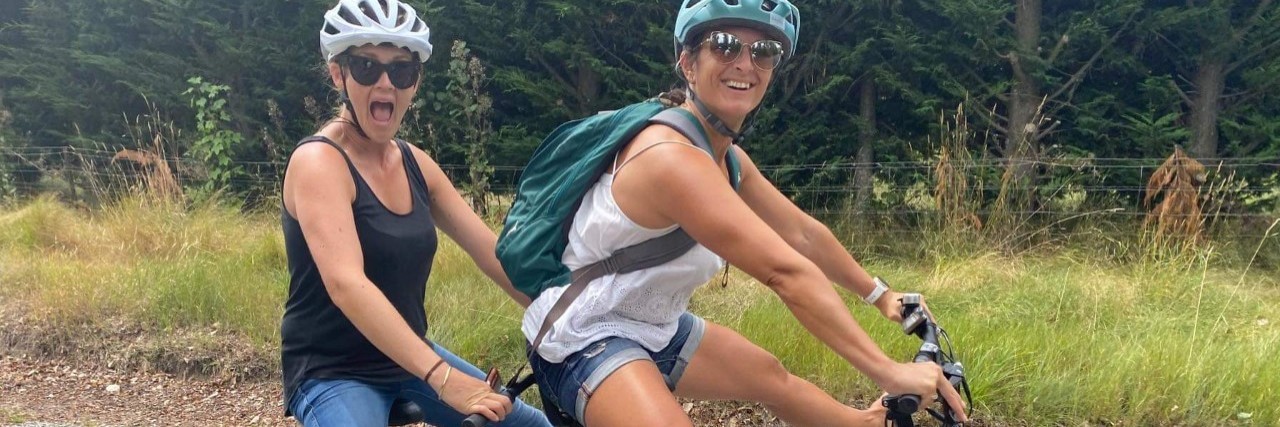This blog addresses a very sensitive topic for me post encephalitis and brain injury — friendships. It is very well-documented that many survivors of brain injuries go on living with a life characterized by declining relationships. On top of all the physical and cognitive changes that occur post brain injury, declining relationships can lead to additional frustrations, feeling of loneliness, hurt and sadness. These often see the survivor further withdrawing themselves from social situations and relationships.
How does it apply to my situation?
Over the last few years, I have found that although some friends have distanced themselves or moved on with new friendships, other friendships have strengthened. I’ve also seen some individuals step up, which is absolutely great. But developing new friendships doesn’t erase the fact that I still have to make peace with the declining ones. It doesn’t erase the fact that reshaping or parting with precious aspects of my life hurts, sometimes a lot. I don’t intend for this blog to be a criticism of how relationships were or are managed, I am hoping that by writing things down, I can better accept how things are or how friendships have changed.
Am I partly responsible for changes in relationships?
Of course I am. No relationship is solely one-sided. I have made mistakes and I’ll be the first to acknowledge that I could have handled some things in a much better manner. I also fully realize that because I can’t partake in certain activities as before, I can’t expect others to also be stuck in the mud. That being said, I have to remind myself there are a lot of aspects of my life and weird wonderful brain that I can’t control anymore. I cannot party as if there will be little consequence for me the following day. I struggle to follow conversations in big groups, which hinders my interactions. I do not feel like the confident self I used to be. My brain can’t process sound like before; I get confused. I forget halfway through a sentence what I wanted to say, my speech is slow and slurred and the list could go on and on, really.
All that alters my overall behavior and I’ve had to modify how I approach life greatly. I’m not sure many people realize the effort it requires to move on in a world that feels completely foreign to me. I also want to acknowledge the fact that I am aware others have to tweak how they would usually interact to give me a fighting chance to partake in discussions. This translates to an adjustment for them too. Unfortunately, that’s also where a lot of frustrations arise for me as I often feel misunderstood and as if my limitations aren’t taken into account.
“The post-injury experience of friendship was broadly conceptualized as ‘going downhill’ with four overlapping phases: losing contact, being misunderstood, wanting to share and hanging on.”
Just because I have to step back and walk around with strict barriers in place due to my weird wonderful brain, it doesn’t mean I am not noticing all those subtle changes that occur over time. In fact, because I have to step back and because I get less caught up with the hazards of life, I am probably in a position to notice them even more. The losses from encephalitis and brain injury are present every day and affect all spheres of my life. The friendship bucket isn’t excluded from the list. Of all the buckets I try to fill, it’s probably the trickiest one to handle and the most sensitive one.
I work really hard on learning to be OK with all the changes that have occurred with friendships and for my own sanity, I truly want to be OK with them. However, some changes are harder to get over than others. Struggling to move on doesn’t make me a bad person, it simply means I care. If what I can still contribute to a friendship doesn’t bring the other party much value anymore, as much as it might hurt me, I have to respect how they wish to move forward. But please don’t pretend things are the same when they aren’t. I haven’t lost all grip on reality yet.
I am learning to appreciate the moments I do get to share with family and friends for what they are without additional expectations or strings attached. That being said, I’m sure everyone can be humble enough here and admit this is a challenge in itself too. Years have gone by now since the original brain insult, and I am handling the changes in friendships better than I used to, but every now and again, the hurt resurfaces and I just need time to process and get back to a place where I am comfortable looking at the relationship in a different light.
Things change, life changes and I have to keep adjusting to what this weird wonderful brain puts in front of me. Like most things in life, it’s a process and the nature of a process is constantly evolving.
If you are a friend or a relative of a brain injury survivor and are a bit puzzled by how best to approach the whole friendship dynamic, I strongly recommend you read the following resource from Headway: How brain injury affects relationships.

